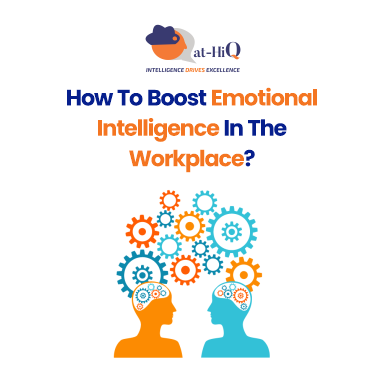Business Coaching
Common Business Challenges: How Can a Business Coach Help to Overcome
Struggling with business challenges?
 10 min read
10 min read
 18 August, 2025
18 August, 2025
We are a business, training, NLP consultants that drive results through the development of people, processes, and technology.
Creating businesses that are built around addressing a need serving clients ranging from startups to established MSMEs and large organizations.
Our coaching sessions, workshops, and strategic planning equips your team with the skills and knowledge to adapt and excel.
We are here to offer clarity, confidence, and a clear path that will easily take you towards your goals.
Our training programs blends engaging learning with interactive methodologies, ensuring that employees absorb knowledge and apply it in their roles.
Our NLP training courses will develop a progressive mindset, cultivate resilience, and will make you learn how to tackle challenges.
Access a wealth of information to help you learn more about our services. Check our gallery, video blocks, case studies!
What comes to mind when you think of a successful entrepreneur? Destroying rivals? Never accept rejection? Ready to fire any worker who fails to get results delivered while they are in charge?

The portrayal of entrepreneurs in the media is mostly wrong and shows or inspires the wrong way of doing business, where it shows business owners driven by an insatiable desire for development, wealth, and authority. Yet, research shows that emotional intelligence, rather than ruthlessness, is what makes entrepreneurs successful.
According to studies, emotional intelligence is more important for entrepreneurship success than cognitive ability. Self-aware and compassionate leaders can weather economic downturns, forge stronger bonds, and maintain their motivation while uplifting their staff.

Business Coaching - Personalised coaching to enhance leadership and performance.
Business Consultancy - Strategic guidance to optimise growth and operations.
Corporate Training - Skill-based training to elevate team productivity.
NLP - Mindset mastery for communication and behavioral change.
Understanding, controlling, and analyzing your emotions are all aspects of emotional intelligence. It involves handling employee criticism admirably.It is developing and getting past strategic errors.
Emotional intelligence is being self-aware and then having the capacity to be aware of others working with you.
Listening, empathy, and awareness are the three pillars of emotional intelligence. It all begins with the individual, their interactions with others,and their aptitude for traits like empathy.
Emotional intelligence, according to world-famous psychologist and writer Daniel Goleman, author of Emotional Intelligence, is a combination of Empathy, Self-awareness, motivation, self-regulation, and social skills.
You Can Also Read :Emotional Intelligence Training, Emotional Intelligence Trainer | at-HiQ
Being self-aware is being able to identify your emotions and how they affect your behavior. Before you've even had a cup of coffee, you could feel irritable and speak in a passive-aggressive manner to your coworkers. You have a strong sense of self-awareness if you can spot patterns in your thoughts, feelings, and behaviors.
You may need to practice self-regulation if you frequently make impulsive, emotionally motivated decisions. Managing your emotions entails remaining calm in stressful times and resisting the urge to act rashly.
For instance, self-regulatory business owners maintain their composure when a worker decides to leave their organization or when a supplier misses a deadline.
Self-motivation entails setting up a setting where you are compelled to achieve goals. Establishing realistic goals, sharing your progress with coworkers, and recognizing little accomplishments can all help entrepreneurs become more self-motivated. And driven businesspeople frequently produce higher-quality work.
In business, compassion is essential. Entrepreneurs must consider themselves in the position of their clients, partners, staff members, and even rival businesses. People are more devoted to and respectful of business owners who lead with their hearts.
Leaders need emotional intelligence, whether they are building their startup or overseeing a large corporation. E motionally savvy executives encourage their staff to act in a certain way because they set an example for the rest of the company.
Develop relationships with your staff as a next step. By setting up pertinent aims and goals, such as improving customer service or launching a volunteer program, you may inspire your employees with a sense of optimism and compassion about your company.
Influence
e sure to have clear, well-intentioned communication with your staff. Before sending emails to the entire organization, gather your thoughts, and practice the behaviors you want to see. Recognize the motivation behind your message; persuasion, not force, is the key to persuading others.
Give staff members helpful, frank feedback. Let them know what they're doing well and where they can improve. Provide options for skill upgrading, such as corporate workshops, mentorship programs, or tuition reimbursement, and do monthly check-ins to monitor their progress.
Self-assurance: You are aware of your strengths as well as your areas for improvement. Recognize your worth to the company and accept that other people there may occasionally know more than you to bolster your confidence.
Being self-aware is being able to identify your feelings. Transparency entails making them accessible to others. Inform your team members of your objectives, progress, ongoing projects, and aspirations. Be honest: it's fine if you believe the business is stuck in a rut or needs assistance with a problem, sharing this with employees will bring a better solution.
Remind yourself to maintain a constructive perspective on the future. Before the workweek begins, start with positive affirmations and tell your staff to think about the positives.
Emotional intelligence is crucial for entrepreneurship success, as it involves understanding, controlling, and analyzing emotions. It involves handling employee criticism admirably and developing and getting past strategic errors. Research shows that emotional intelligence is more important for entrepreneurship success than cognitive ability.
Self-aware and compassionate leaders can weather economic downturns, forge stronger bonds, and maintain their motivation while uplifting their staff. By fostering emotional intelligence in their leaders, they can create a positive work environment and inspire their employees to perform at their best. To give your organization the advantage of Emotional Intelligence, contact at-HiQ

Janki Bhatt is a highly respected Coach, Facilitator, Educator, Business Consultant and therapist. She is a Licensed Practitioner and an International Trainer for Neuro linguistics Programming from National Federation of Neuro linguistics Programming (NFNLP, USA). She specializes in teaching advanced mind/body technologies for peak performance, persuasion and rapid healing, relationships and more.
Here are further articles you might find
interesting:
Business Coaching
Struggling with business challenges?
 10 min read
10 min read
 18 August, 2025
18 August, 2025
Corporate Training
Discover the top 10 benefits of training employees
 10 min read
10 min read
 05 june, 2025
05 june, 2025
Corporate Training
Personal effectiveness is the foundation for successful careers!
 10 min read
10 min read
 21 April, 2025
21 April, 2025
Corporate Training
Learn the top 10 causes of high employee turnover & tips to reduce it.
 10 min read
10 min read
 03 April, 2025
03 April, 2025
 8 min read
8 min read
 28 march, 2025
28 march, 2025
Business Coaching
Business coaching offers ROI through financial growth, leadership development,
 8 min read
8 min read
 17 march, 2025
17 march, 2025
Business Coaching
Hiring a business coach can accelerate growth
 10 min read
10 min read
 03 march, 2025
03 march, 2025
Corporate Training
You're scrolling through LinkedIn, and for the 20th time,
 10 min read
10 min read
 05 february, 2025
05 february, 2025
Business Coaching
You're scrolling through LinkedIn, and for the 20th time,
 5 min read
5 min read
 16 january, 2025
16 january, 2025
Business Consultancy
Did you know businesses waste up to 26% of their productive hours
 10 min read
10 min read
 07 january, 2025
07 january, 2025
Business Consultancy
At some point, every business owner/entrepreneur faces the question:
 9 min read
9 min read
 02 january, 2025
02 january, 2025
NLP
NLP can improve your negotiation skills by helping you develop empathy
 10 min read
10 min read
 09 December, 2024
09 December, 2024
Business Coaching
A business coach enhances performance through targeted strategies
 10 min read
10 min read
 25 november, 2024
25 november, 2024
Corporate Training
Picture your three best people. Now, think about what it would take to replace them
 10 min read
10 min read
 19 november, 2024
19 november, 2024
Corporate Training
Corporate training is not something that one can show off in boardrooms or on one's LinkedIn profiles.
 10 min read
10 min read
 28 october, 2024
28 october, 2024
Business Coaching
Ah, again, there comes a question: “Do I need a business consultant or a business coach?”
 13 min read
13 min read
 22 october, 2024
22 october, 2024
Business Coaching
Let’s cut to the chase - Starting or running a business is hard!
 7 min read
7 min read
 17 october, 2024
17 october, 2024
Art of Sales
For as long as sales have been around,
 6 min read
6 min read
 06 october, 2024
06 october, 2024
Training Consultancy
Whether you're running an office or leading a team on a project, you need people skills to engage with your team effectively.
 2 min read
2 min read
 24 August, 2023
24 August, 2023
Training Consultancy
Developing Emotional Intelligence within Your Team As a founder, you probably collaborate with several teams.
 3 min read
3 min read
 25 July, 2023
25 July, 2023
Training Consultancy
What comes to mind when you think of a successful entrepreneur? Destroying rivals?
 4 min read
4 min read
 15 July, 2023
15 July, 2023
NLP
NLP is the science of modelling an excellence.
 3 min read
3 min read
 30 December, 2021
30 December, 2021